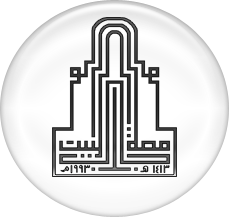| DC Field | Value | Language |
|---|
| dc.contributor.author | رائد علي الكردي | - |
| dc.date.accessioned | 2019-10-08T05:33:20Z | - |
| dc.date.available | 2019-10-08T05:33:20Z | - |
| dc.date.issued | 2018-04-22 | - |
| dc.identifier.uri | http://hdl.handle.net/123456789/1815 | - |
| dc.description.abstract | ملخص
تناولت هذه الدراسة موضوع الأحكام المتعلقة بالخلع الرضائي والافتداء والفرق بينهما في الفقه الإسلامي وقانون الأحوال الشخصية الأردني الجديد لعام 2010م، وقد جاءت الدراسة في مبحثين، تحدثت في أولهما: عن تعريف الخلع في اللغة والاصطلاح، وعن حكم الخلع الرضائي في الفقه الإسلامي، وعن أهم الأحكام المتعلقة بالخلع الرضائي في الفقه وقانون الأحوال الشخصية الأردني. وفي المبحث الثاني: تحدثت الدراسة عن الافتداء وحكمه، وعن أحكامه في الفقه الإسلامي وقانون الأحوال الشخصية الأردني، ثم بيّنت الفرق بين الخلع الرضائي والافتداء حسب ما ورد في القانون، وأنّ القانون يقصد بالافتداء الخلع القضائي، أي الذي يتم عن طريق القاضي ومن غير رضا الزوج. وقد خلصت الدراسة إلى مشروعية الخلع الرضائي والافتداء الذي تطلبه الزوجة بحقّ مع تسجيل بعض الملاحظات على الأحكام المتعلقة بهما، ولا يعدّ بُغض الزوجة وحده لزوجها مسوّغا لجواز الافتداء.
Abstract
The study tackles the procedures concerned with consensual divorce and ransoming as well as their differences according to the Islamic jurisprudence and the 2010 Jordanian personal law. The study falls into two chapters. The first is mainly concerned with the linguistic and terminological meaning of divorce as well as discussing the procedures of consensual divorce from an Islamic jurisprudential perspectives. The second focuses upon ransoming and its procedures according to the Islamic jurisprudence and the 2010 Jordanian personal law. Throughout these two chapters the differences between the two terms, namely consensual divorce and ransoming, are intensively shown up. As far as the judicial divorce is done by the judge without the husband's consent, the study aims to conclude with the legitimacy of consensual divorce and ransoming that are rightly claimed by the wife. The study, therefore, records certain notes concerning the procedures related to these two terms; the wife's hatred for her husband is not justified to the extent that it authorizes ransoming. | en_US |
| dc.subject | - | en_US |
| dc.title | أحكام الخلع الرضائي والافتداء والفرق بينهما "دراسة فقهية مقارنة بقانون الأحوال الشخصية الأردني لعام 2010م" | en_US |
| dc.type | Other | en_US |
| Appears in Collections: | المجلد 15، عدد 3 لسنة 2019
|

